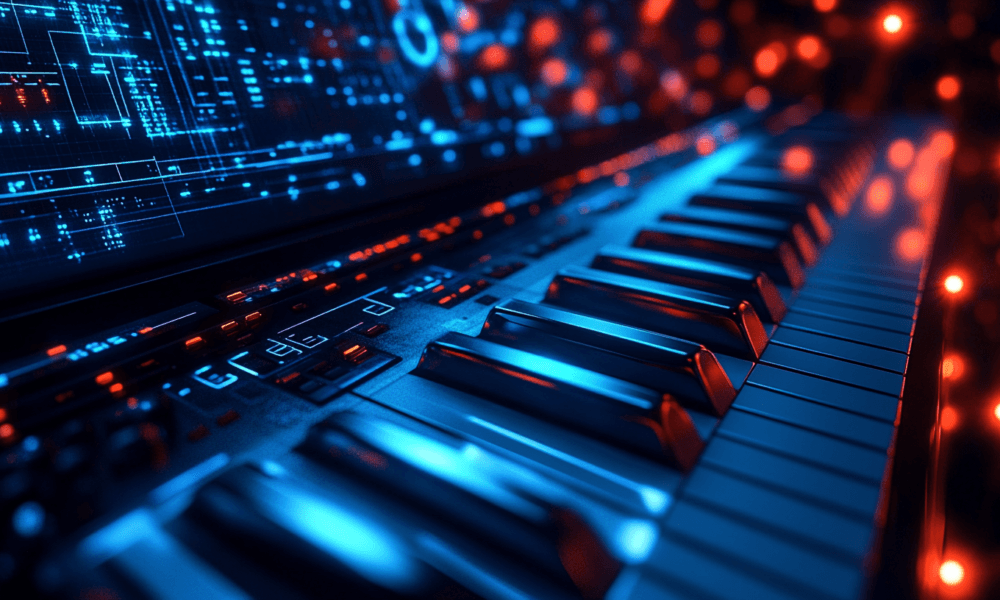All 3 Major Record Labels are Suing AI Start-Ups: The Legal Battle Over Copyright and Music Creation
In 2024, a significant legal battle is unfolding that could shape the future of the music industry for years to come. The three major record labels — Universal Music Group (UMG), Sony Music Entertainment, and Warner Music Group (WMG) — are collectively suing several AI start-ups for alleged copyright infringement. These lawsuits center around the use of copyrighted music to train artificial intelligence models that generate new music. The outcome of this battle could have far-reaching consequences for artists, record labels, and AI developers, fundamentally altering how music is created, distributed, and monetized. In this article, we will explore the details of the legal battle, the arguments on both sides, and the potential consequences for the music industry.
The Rise of AI in Music Creation
Artificial intelligence has made significant strides in recent years, and its application in the music industry has been particularly transformative. AI music generation tools have been developed to compose original tracks, remix existing music, and even create entirely new compositions based on user inputs. These tools use machine learning algorithms that are trained on vast datasets of existing music to learn patterns, styles, and structures, ultimately generating music that resembles human-made creations.
1. AI Music Start-Ups: Disrupting the Traditional Music Industry
Several AI music start-ups have entered the scene, promising to democratize music creation and provide artists and music enthusiasts with new tools to create unique sounds. Companies like Endless AI, Amper Music, and Boomy have gained popularity for their ability to generate high-quality music with minimal human intervention. These start-ups use existing music as a training set for their AI models, raising concerns among major record labels about the legality and ethics of such practices.
- Ease of Access: AI music tools make it possible for individuals with little to no musical experience to create professional-sounding tracks. This has opened up new creative opportunities but has also blurred the lines between original content and derivative works.
- The Controversy: The use of copyrighted music as training data without proper licensing has become a significant point of contention. The major record labels argue that AI start-ups are using their intellectual property without authorization, while AI companies claim that their practices fall under the concept of fair use.
The Legal Battle: Arguments From Both Sides
The lawsuits filed by UMG, Sony, and WMG have brought the debate over copyright and AI music generation into the spotlight. Both sides have presented compelling arguments, each with potentially significant implications for the future of music creation and intellectual property rights.
1. The Record Labels’ Perspective: Protecting Intellectual Property
The major record labels argue that AI music start-ups are engaging in copyright infringement by using copyrighted works to train their AI models without obtaining proper licenses. They assert that this practice is no different from unauthorized sampling, which involves taking portions of a copyrighted song without permission and incorporating them into a new track.
- Unauthorized Use of Copyrighted Material: The labels contend that training AI models on copyrighted music is a form of unauthorized use. The music in question is the result of significant creative effort, and its use without permission constitutes a violation of the rights of the artists, songwriters, and labels involved.
- Impact on Artists: The labels also argue that the proliferation of AI-generated music could have a detrimental effect on artists. If AI models can generate music that closely mimics human-made compositions, it could reduce the demand for original content created by artists, ultimately impacting their livelihoods.
- Financial Compensation: The lawsuits seek financial compensation for the use of copyrighted works, as well as injunctions to prevent AI companies from using copyrighted music in their training datasets without proper licensing agreements.
2. The AI Start-Ups’ Perspective: Fair Use and Innovation
On the other side, AI start-ups argue that their use of copyrighted music for training purposes falls under fair use, a legal doctrine that allows for limited use of copyrighted material without permission under certain circumstances. They argue that training an AI model on existing music is transformative and ultimately serves to advance creativity and innovation.
- Fair Use Doctrine: The start-ups claim that their practices are akin to transformative use, where copyrighted material is used in a way that adds new meaning or purpose. They argue that training an AI to generate new music is fundamentally different from reproducing or distributing the original work and, therefore, should qualify as fair use.
- Advancing Creativity: The AI companies also emphasize the innovative potential of their technology. They argue that AI-generated music can serve as a tool for artists, not a replacement. By providing musicians with new ways to experiment and create, AI can help artists push the boundaries of creativity.
- Lack of Clear Regulation: The AI start-ups have also pointed out the lack of clear legal guidelines around the use of copyrighted material for training AI models. They argue that the absence of specific legislation on this issue means that their practices are not explicitly prohibited, and therefore, they should not be held liable.
Potential Consequences for the Music Industry
The outcome of this legal battle could have far-reaching implications for the music industry, AI development, and copyright law. Depending on the ruling, it could set a precedent for how copyrighted material can be used in AI training and determine the extent to which AI-generated music can coexist with traditional music creation.
1. Implications for AI Start-Ups and Developers
If the courts rule in favor of the record labels, AI start-ups may face significant challenges. They could be required to obtain licenses for the music they use, which could be prohibitively expensive, especially for smaller companies. This could stifle innovation in the AI music space and limit the availability of AI music tools to the general public.
- Increased Licensing Costs: AI developers may need to negotiate licensing agreements with record labels, potentially increasing the cost of developing and offering AI music tools. This could make it difficult for start-ups to compete with established players in the industry.
- Changes to Training Data: AI companies may be forced to find alternative ways to train their models, such as using royalty-free music or working with artists who are willing to provide their music for training purposes. This could limit the diversity of the music that AI models can generate and reduce the quality of the output.
2. Implications for Artists and the Music Industry
For artists and the broader music industry, a favorable ruling for the record labels could help protect their intellectual property rights and ensure they are compensated for the use of their work. However, it could also limit the potential for collaboration between human musicians and AI tools.
- Protection of Creative Rights: A ruling in favor of the labels would reinforce the idea that creative works are protected under copyright law, regardless of how they are used. This would provide artists with greater confidence that their music will not be exploited without proper compensation.
- Impact on Collaboration: On the other hand, a strict regulatory environment could discourage collaboration between artists and AI developers. Many musicians have expressed interest in using AI tools to enhance their creative processes, and restrictive licensing requirements could hinder such partnerships.
- Evolution of Copyright Law: The case also has the potential to shape the future of copyright law. The outcome could prompt lawmakers to establish clearer guidelines around the use of copyrighted material for training AI models, providing greater legal certainty for both artists and developers.
Balancing Innovation and Copyright Protection
The ongoing legal battle between the major record labels and AI start-ups highlights the tension between innovation and copyright protection. On one hand, AI technology has the potential to revolutionize music creation, making it more accessible and opening up new creative possibilities. On the other hand, the use of copyrighted material without proper authorization raises important questions about the rights of artists and the value of their work.
- Finding a Middle Ground: One potential solution could involve developing a licensing framework specifically for AI training. This could allow AI companies to access copyrighted music in a way that ensures artists are fairly compensated while still enabling innovation in the AI space.
- Industry Collaboration: Another possibility is for record labels and AI start-ups to work together to create mutually beneficial partnerships. By collaborating with artists and obtaining the necessary licenses, AI companies could continue to innovate while respecting the intellectual property rights of creators.
Conclusion
The legal battle between the three major record labels and AI music start-ups is a pivotal moment for the music industry. As artificial intelligence continues to advance, the question of how to balance innovation with copyright protection will become increasingly important. Both sides of the argument present valid points: the need to protect the rights of artists and their work, and the desire to leverage new technologies to push the boundaries of creativity.
The outcome of these lawsuits could set a precedent that shapes the future of music creation, determining whether AI can coexist with traditional music and how the industry will navigate the challenges posed by emerging technologies. Regardless of the outcome, it is clear that the conversation around copyright and AI is far from over, and the music industry must adapt to a rapidly changing technological landscape.




No Comment! Be the first one.